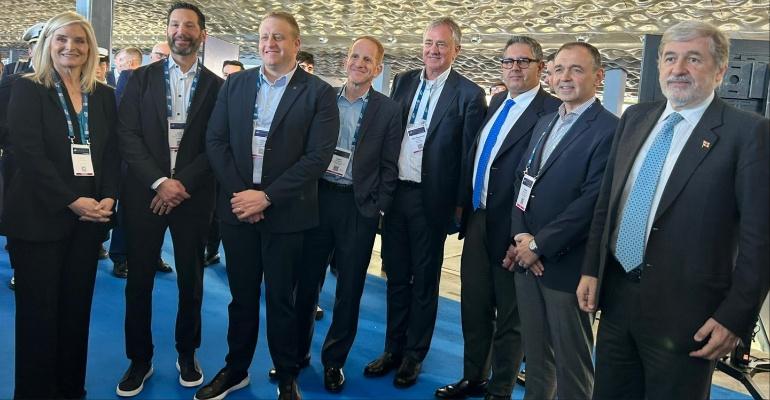Marie-Caroline Laurent, CLIA’s director general for Europe, told Seatrade Cruise News at the event in Genoa, Italy, last week: ‘In the context of the entry into force of the EU ETS, and in advance of the European Parliament election, CLIA asks for the revenues from the purchase and surrender of ETS emissions allowances to be invested in supporting the development of green technologies, applied to both shipbuilding and retrofitting activities, and the building up of the volume of sustainable marine fuels.’
ETS
From January 1, 2024 CO2 emissions from ships of and above 5,000gt, calling or departing from ports in the European Economic Area – regardless of flag state (EEA/non EEA) – are included in the scheme. Since that date, cruise lines are required to monitor and report their greenhouse gas emissions and purchase emission allowances for each tonne of CO2 emitted.
By March 31, 2025 operators will have to report their CO2 emissions for 2024 and by September 30, 2025 surrender a quantity of allowances equivalent to their GHG emissions.
According to a DNV assessment, the cruise industry will likely contribute to the EU ETS emission allowance with a budget of €600m per year.
‘We are asking to invest in the scaling up of production volumes of sustainable marine fuels, supporting the producers of these fuels, and to introduce incentive mechanisms such as the Dutch government has done to partially compensate for the difference between the more expensive sustainable fuels and current fossil fuels,' Laurent said. More sustainable fuels are currently three to five times more expensive.
Different for aviation
To accelerate the transition to greener fuels, Pierfrancesco Vago, executive chairman of the cruise division of MSC Group, again called for the cruise industry to be treated in a similar way to the aviation sector where the ETS scheme includes sustainable aviation fuel allowances. The EU distributes, for free, 20m allowances until 2030 to increase the uptake of sustainable aviation fuels, covering the price differential with conventional jet fuel for operators using SAF. The 20m in allowances has an estimated value of just under €2b at current carbon prices.
Copyright © 2024. All rights reserved. Seatrade, a trading name of Informa Markets (UK) Limited.
Add Seatrade Cruise News to your Google News feed.  |

